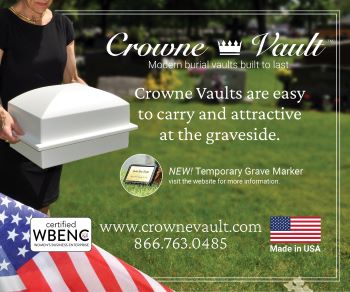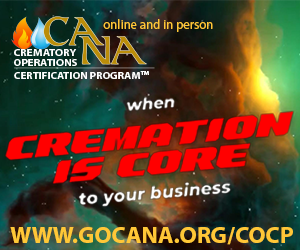The psychology of the service
 A front page article in the Sunday Minneapolis Star Tribune was entitled, “Families finally put loved ones to rest“. The article deals with just what it sounds like, the process of finishing the services for those who died during the COVID-19 pandemic and funeral or memorial services were delayed because of the social distancing rules in effect. You can read this article here.
A front page article in the Sunday Minneapolis Star Tribune was entitled, “Families finally put loved ones to rest“. The article deals with just what it sounds like, the process of finishing the services for those who died during the COVID-19 pandemic and funeral or memorial services were delayed because of the social distancing rules in effect. You can read this article here.
If you are like our funeral home you are now seeing an increase in the number of services you are being asked to conduct for those who died between April 2020 and March of 2021. I think that is good. But, it is not always easy for families members to re-open those thoughts of loss sometimes a year later.
Featured in the article is Lynn Wright, whose husband died on December 8, 2020, but she did not hold services until June 12. The newspaper says, “It was the kind of gathering Wright envisioned for her 54-year old husband — a casual service with military honors. . . . but it was a long time coming.”
Wright was quoted, “I’m tired of crying. It’s painful to draw something out this long after you lose somebody. You’re trying to heal your heart. You’re trying to live again. And then you have to drag it all back and relive it. It’s not easy.”
The article also points out that Twin Cities funeral director Ken Coutts understands those feelings. The Star Tribune says, “His father died in March 2020, and graveside services were limited primarily to immediate family. COVID-19 travel restrictions kept his brother, who lives in California, from attending.”
Coutts now has a dilemma. . . . He says this, “Now it it’s a year later and I don’t know whether to do it (hold a larger public gathering). On one side of the debate it’s about honoring my father the way I think he should be honored. On the other side: Do I want to put myself through that process again, bringing up all those emotions that go with it? I guess I’ll leave it up to my brother in California because he couldn’t be here.”

Tom Anderson
Funeral Director Daily
On Friday night I ran into an old high school friend of mine whose mother recently died. I offered my condolences and as we talked she told me how tough the last year was. While the death was recent so they could have a service, for 12 of her mother’s last 14 months she could not physically see her family. Mom was in a nursing home, and while she did not have COVID, the social distancing rules did not let family go see her. . . so in effect, she lived a complete year in a sort of family isolation. That is just not how life is supposed to be lived. The daughter wept when she told me how hard that was.
I’m of the opinion that human interaction is a basic human need. And, I learned from my Psychology of Grief instructor back in mortuary school that “grief shared is grief diminished”. I have believed that ever since I first heard it. . . .that is what has made this year so difficult for so many — the fact that, without public services, there has not been those there to help us diminish our grief.
I also learned about unresolved grief and how that can manifest later on. Funeral directors and others in the death care profession did what they could during the pandemic to help grieving family members – probably more so than any other profession. However, as I read articles like the Minneapolis Star Tribune one from Sunday, I worry about the collective psyche of Americans who have grieved in isolation and could not have their grief publicly acknowledged. For many of them, I believe mental health could be compromised in the future.
I think many Americans are like Cindy Thalhuber who is also mentioned in the attached article. Her mother died in March 2020 and the family had planned a memorial service last August or September and again in March 2021, but did not go through with it. Thalhuber is quoted in the article, “It will be hard to go back to that point where we’re all sad again. . . . . Right now it’s kind of like a book that doesn’t have an ending yet. We just haven’t finished.”
More news from the world of Death Care:
- StoneMor, Inc. to join Russell 3000 and Russell Microcap indexes. Yahoo Finance
- Bodies removed from unlicensed Ypsilanti crematory. MLive (MI)
Enter your e-mail below t0 join the 2,151 others who receive Funeral Director Daily articles daily:





















Great article Tom – SO important. I spoke with the guys in FN Nation about memorials and it is such a wound for most people. I remember hearing someone from the medical arena saying that depending on how a wound is treated depends on how it heals and I believe that to be the same with this. Do you rip the bandaid (plaster in Ireland!) back off or do you leave it on in the hope it heals itself.
Ron,
You are welcome to use this article in any way that you see fit to benefit the profession.
Thanks for your continued support of Funeral Director Daily.
Tom Anderson
May I save and quote this article? I am so pleased to see it. I agree totally.
It is time that we get back to doing funerals, to practicing our profession. Our profession has not been energetic in making our value propositions important. Closure is a misnomer. We need to have a nomenclature that replaces the easy-out concept of closure. We need to be making the importance of what we do important again. In my opinion the service that we provide is that of comfort and confidence and families need our help to achieve that. So may I repeat: it is time for us to practice our profession and to do that we must define our value and market to the public our proposition…..aggressively. Your article demonstrates the need. Thank you.